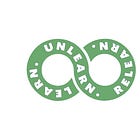Nullius In Verba
"Take Nobody's Word for It”
Welcome to Polymathic Being, a place to explore counterintuitive insights across multiple domains. These essays explore common topics from different perspectives and disciplines to uncover unique insights and solutions.
Today's topic introduces one of the most notable scientific societies on the planet and then considers their motto, "Take Nobody's Word for it,” as a rallying cry as we explore the world around us. Join as we discover the power of incredulity, tools to separate fact from fiction, and methods to improve our knowledge.
Intro
The Royal Society, originally dubbed The Royal Society of London for Improving Natural Knowledge, wasn’t just another academic club; it was a revolution in how humans approached understanding the world. Founded in 1660, this wasn’t a place for armchair theorizing; it was a battleground where observation, experimentation, and the relentless pursuit of truth took center stage. The early members included Isaac Newton, Robert Hooke, and Christopher Wren; Brilliant minds and disruptors who dismantled centuries of dogma with cold, hard data.
Its motto, Nullius in verba ("Take nobody’s word for it"), was not just a catchy phrase. It was a direct challenge to the status quo, a demand for evidence over authority in a world just separating itself from the feudalism in Europe, and in the middle of pushing back on religious interference.1 From its inception, it aspired to be a beacon for those who refuse to accept "truth" without question, pushing the boundaries of knowledge and challenging us all to think deeper, test harder, and never settle for easy answers.
The Royal Society was envisioned to be a polymathic enterprise that embraced the philosophy of Learn, Unlearn, and Relearn. It’s a grand endeavor that is actually rooted even further back. Take, for instance, this teaching from the Buddha:
“Do not believe in anything simply because you have heard it. Do not believe in anything simply because it is spoken and rumored by many. Do not believe in anything simply because it is found written in your religious books. Do not believe in anything merely on the authority of your teachers and elders. Do not believe in traditions because they have been handed down for many generations. But after observation and analysis, when you find that anything agrees with reason and is conducive to the good and benefit of one and all, then accept it and live up to it.”
I love this quote and it was the motivation for me to write this essay because it resonated with me. However, “Take nobody’s word for it” because, guess what? Buddha didn’t say it. In fact, in the original Kalama Sutta, the lesson is more zen-like and says basically the opposite; that you should lead with what you know in your heart to be true, regardless of the rational analysis.
Well, that’s annoying, but it shows the value of the motto to do your own research and challenge what justifies your biases and the point of the Royal Society was to challenge the dogmas and status quo of the day, however, we live in a world where that sterilized and, in theory, objective analysis, runs smack dab into an elephant in the room: Human emotions.
A Paradox
Every man has the right to an opinion but no man has a right to be wrong in his facts. Nor, above all, to persist in errors as to facts. - Bernard Baruch (Emphasis mine)
Nullius In Verba is a double-edged sword that can be wielded as both a logical test of truth and an emotional rejection of truth. We have to be careful because our emotions create a paradox where they can blind us to the truth that is right in front of us. An interesting example of this was a recent social media exchange in which a woman challenged my explanation of the archetypes of the feminine as chaos and the masculine as order. Ironically, her resistance to the idea exemplified the chaos she found problematic.
She emotionally resisted the idea, couldn’t articulate a counterpoint, and therefore missed the greater discovery that chaos is essential to creating antifragility, a superpower. She took nobody’s word for it at the cost of missing the truth.
Nullius In Verba
To me, Nullius In Verba means the first person I check their word on is myself. While I don’t always get this right, I have a personal mantra: “Don’t be disprovable.” That doesn’t mean I’m afraid of being wrong; what it means is that when I write these essays, I’m always looking to apply them to myself before sharing them and also expecting you to apply them to yourselves, before expecting the same from others.
Once we’ve double-checked our own words, we can credibly analyze the words and statements of others. A great example of what not to do is how the Royal Society itself recently fell victim to groupthink when, in an attempt to support the legitimate, scientific questions on the COVID vaccines, it proposed "legislation and punishment of those who produced and disseminated false information" about an experimental medical intervention.2
A former UK Supreme Court Justice, Lord Sumpton, called attention to this disappointing abandonment of their motto when he wrote about the Royal Society’s support of censorship and reminded them that "Science advances by confronting contrary arguments, not by suppressing them."
They didn’t first check their own words and goals and fell victim to the emotional paradox that challenges Nullius In Verba.
Balance
Taking nobody’s word for it requires balancing two things:
Checking yourself to see if you’re really being rational or emotional and considering those implications.
Then, checking and validating the information that’s being presented. Ensure you’re checking their biases as well and wehther the information and delivery is designed with clickbait and fear porn.
The balance of Nullis In Verba is about constantly questioning the information that’s been fed into your life, whether from social media, work, the news, your friends, and more. It’s not about being cynical or trust-less. It’s about being defensible in a world that feels like it’s feeding us one Psyop after another.
Most importantly, Nullius In Verba encapsulates the core of Polymathic thinking, which we’ve described as insatiable curiosity, humility to accept we don’t know everything, and intentional reframing to ensure we understand the problem. This is the power of incredulity, with tools to separate fact from fiction and methods to improve our knowledge.
Did you enjoy this post? If so, please hit the ❤️ button above or below. This will help more people discover Substacks like this one, which is great. Also, please share here or in your network to help us grow.
Polymathic Being is a reader-supported publication. Becoming a paid member keeps these essays open for everyone. Hurry and grab 20% off an annual subscription. That’s $24 a year or $2 a month. It’s just 50¢ an essay and makes a big difference.
Further Reading from Authors I Appreciate
I highly recommend the following Substacks for their great content and complementary explorations of topics that Polymathic Being shares.
Goatfury Writes All-around great daily essays
Never Stop Learning Insightful Life Tips and Tricks
Cyborgs Writing Highly useful insights into using AI for writing
Educating AI Integrating AI into education
Andrew Perlot Powerful insights into the philosophy of agency
This was the time of Galileo and of revolution in politics, religion, and science.
After several years, this has been proven true time and again. The very definition of a vaccine was changed from ‘prevents infection’ to ‘reduces symptoms, ’ which changed the treatment from a true vaccine to merely a therapeutic.










Your writing is almost impossible to finish reading with all the embedded links that I keep wanting to also read but I'm loving discovering another polymathic being!
Whoa whoa whoa, you're saying I need to verify pithy quotes?
I actually rather like the idea that you can prove an example with a counterexample! I'm sure it's an older idea, but I'm gonna steal this one from you directly.